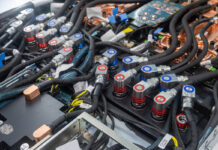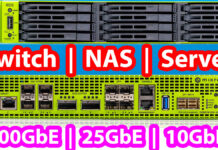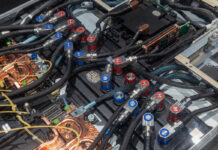Supermicro AS-2015HS-TNR Internal Hardware Overview
Inside the system, we are going to work from front to rear. Here we can see the fan partition and the storage backplane.
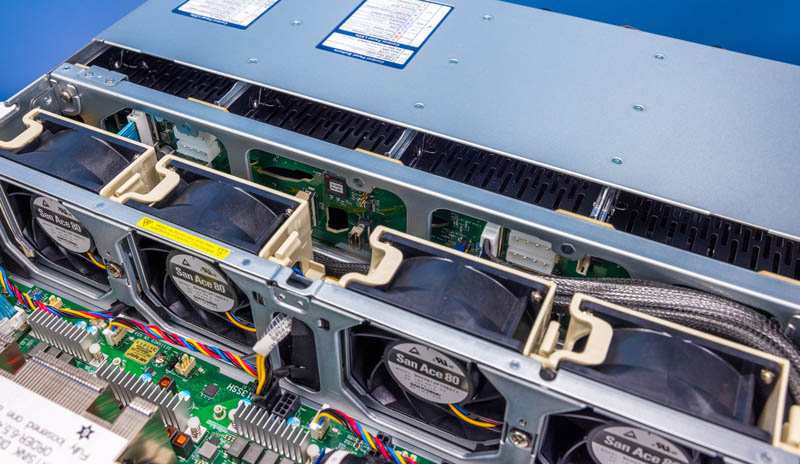
The fans are standard Supermicro San Ace 80’s found in many of the company’s servers and in hot-swap carriers.
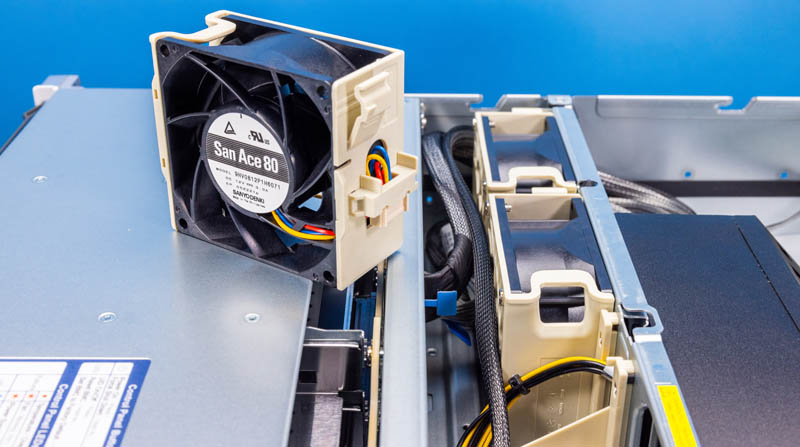
In the center of the system, we get the airflow guide that starts to reveal the big feature of this server.
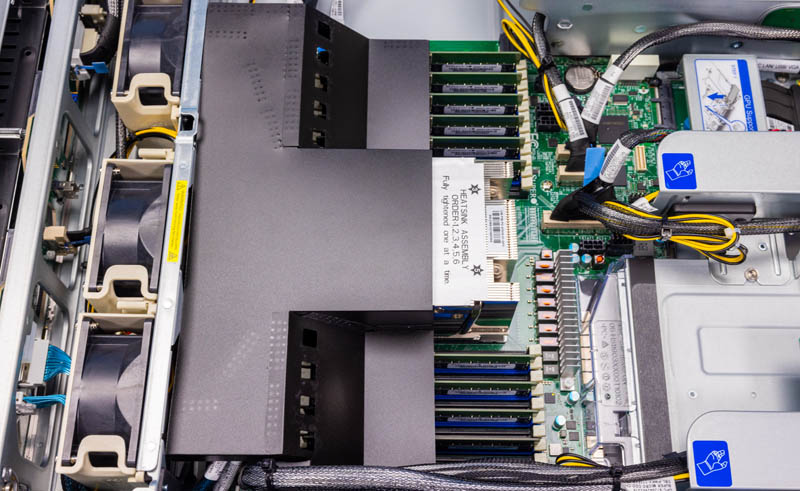
We can pull away the airflow guide and see the CPU and memory.
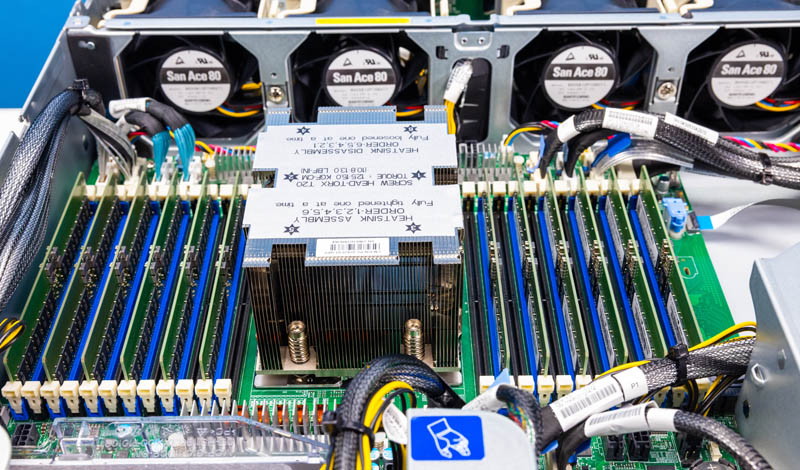
The CPU socket is AMD SP5. This houses parts like AMD EPYC “Genoa” mainstream parts.
New for 2023, it can also house the “Genoa-X” parts with up to 48MB of L3 cache per core or over 1.1GB total, and even the new AMD EPYC Bergamo parts with up to 128 cores per socket. The 128-core AMD EPYC Bergamo is what we have installed here.
While this server may seem dainty to some with a single socket, the fact is that one can have twice the number of threads in this server as an Ampere Altra Arm server (and more than 2x the performance) and more cores than a dual-socket Intel Xeon “Sapphire Rapids” server.
The next big feature, however, is the memory. Instead of just getting 8 DDR5 channels, we get a full 12 channels of DDR5 on this platform. This system can also handle 2 DIMMs per channel. That means you can use a total of 24x DDR5 DIMMs on this platform giving you a lot of capacity.
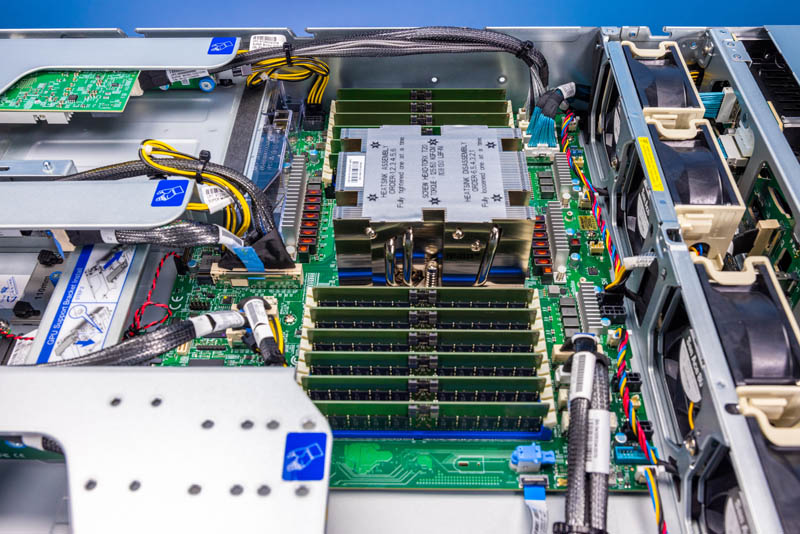
Next to the DIMMs, we get one of the two M.2 boot SSD slots.
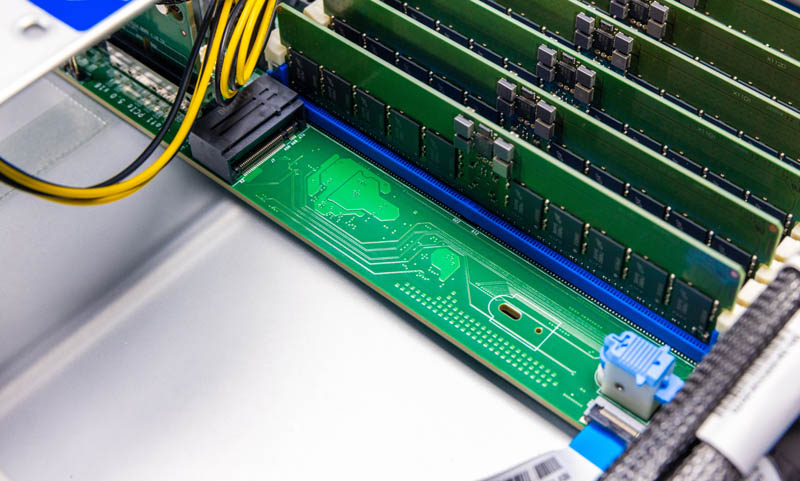
Something to just take a look at quickly is how motherboard design has changed. The CPU socket and memory are so wide that they take up well over half of the width of the 19″ server. As a result, there is a huge area off to the side that can be used for cables and more. Also, the motherboard no longer occupies the full width of the chassis.
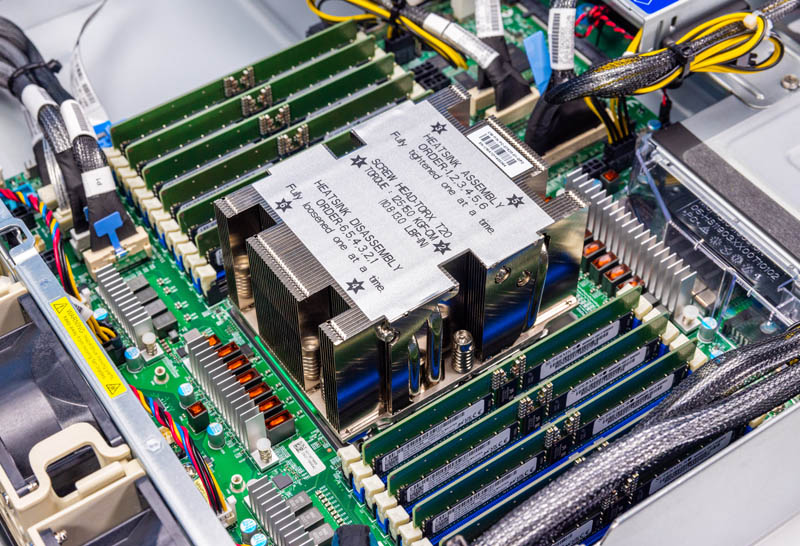
The other big change is the length of the motherboard. As deep as the server is, this picture shows the depth of the entire motherboard from front to back. With PCIe Gen5, signal integrity in PCB is a challenge, so Supermicro is cabling all but one PCIe Gen5 expansion slot in the server, and the front drive bays are also cabled.
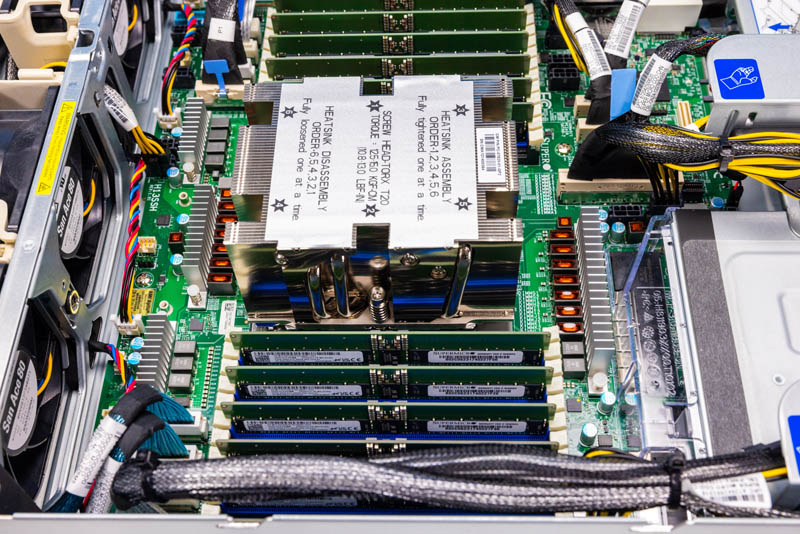
A good example of this is the OCP NIC 3.0 cable that extends from the edge of the motherboard.
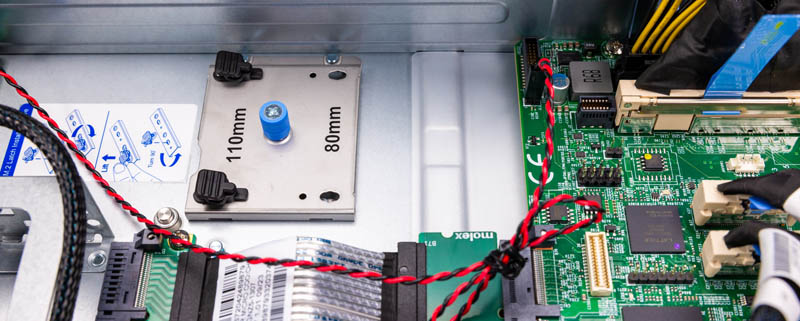
One can see mounting for two M.2 drives here, but only one can be used in this configuration.
This is a really good look at how servers have changed over the years. Next, let us take a look at how all of this is connected.

